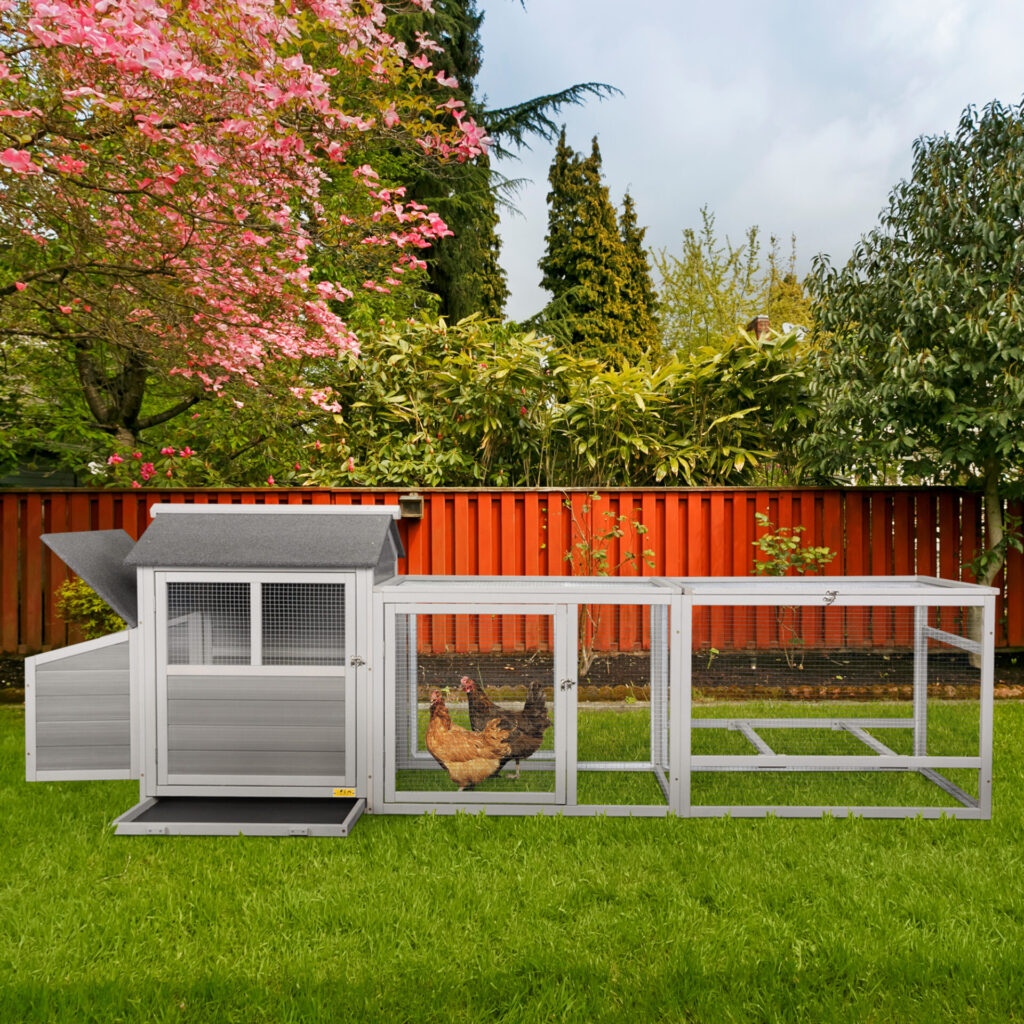Is your chicken coop stinking to high heaven? Is your neighbor complaining about the smell of the chicken coop wafting across the fenceline? If that’s the case, I’ve got a few pointers and tricks to help you fix your coop or at least understand the problem.
The Culprit
Several factors can contribute to a bad odor in your chicken coop. However, ammonia is the most likely culprit. Ammonia is a natural byproduct found in poultry manure that, when vaporized, has an extremely strong and foul odor.
The Problem
High ammonia levels in the coop environment cause a number of problems, one of which is that it causes your chicken coop to stink. The more serious issue with high ammonia levels in the coop is the effect it has on your bird’s and your own health. Mild ammonia odors are unpleasant for short periods of exposure, such as when collecting eggs, but keep in mind that your chickens are breathing it 24/7. Remember that your chickens are much closer to the ground than you are, so they get a much stronger whiff than you do.
Chicken Coop Smell
Ammonia can be easily managed in the chicken coop, but we must first understand what causes the ammonia in our coop to turn gaseous. Moisture in the coop bedding has a direct impact on the amount of ammonia in the air. In short, the higher the ammonia level in the coop, the wetter the litter.

Keep it Dry
The key to preventing ammonia from escaping into the air is to keep the bedding pack dry. It sounds simple, but there are a few major sources of moisture in the chicken coop that we must consider.
Water
What kind of irrigation system do you have? Is it dripping? Water dispensers that leak or are incorrectly set are a sure source of extra moisture. Make sure the lip of your trough waterer is at the level of your bird’s back. Setting this height correctly will reduce splashing and trough fouling. Do you want to stop water leaks? Make use of a nipple waterer. A properly configured nipple waterer results in dryer bedding, cleaner water, and healthier birds. Without jumping, chickens should have to stretch up just a little to reach the metal valve of the nipple. Setting them at this height will significantly reduce any leaking while they are in use.
Weather
Is your roof waterproof? Is there enough roof overhang on your coop to keep rain from entering the windows? Rainwater getting into your bedding will undoubtedly result in a strong chicken coop odor, so make sure your roof and coop are adequate to keep your birds and their litter dry.
Humidity
During the summer, some of us are subjected to oppressive humidity. We’re afraid there’s nothing we can do about it unless you have an air-conditioned coop. One thing we can do is ensure adequate ventilation. If my coop becomes damp or overly hot in the summer, I’ll add a box fan to the window to move some air. It does not draw moisture from the environment, but it does vent ammonia so that it does not build up in the coop.
Bugs
Some bugs are welcome in the coop, but flies are a pest that should be avoided. Flies are drawn to wet litter packs, especially during humid months. To manage your unwanted guests, use a high-quality fly repellent or predator wasps.
Bedding
The type of bedding you use and how well you maintain it will have a big impact on how much chicken coop smell you get. Never, ever use straw or hay for bedding! Both of these beddings trap moisture and provide a breeding ground for bacteria.
Deep Bedding Method
Use a deep bedding pack of pine shavings, which can be purchased at any feed and grain store. No, wood chips from the neighborhood tree company do not count, but good try. In my barns, I use a deep bedding of pine shavings that is 12 to 16 inches deep. The deep litter absorbs moisture into the pack and allows it to escape later when the coop environment allows it.
Cleaning Deep Bedding
If the top of the bedding becomes clogged, turn it with a pitchfork. Because there is so much deep bedding litter, you can go much longer between chicken coop cleanings without encountering a strong chicken coop odor. I wait until the bedding pack is completely grey from top to bottom.
The bedding pack will eventually need to be replaced. If an excessive amount of water enters the coop, such as if a waterer breaks or a roof leak soaks the bedding, you must change the bedding.
Outdoor Areas
When it comes to controlling a bad chicken coop smell, outdoor coops and runs are slightly more difficult. For outside coop areas, I recommend focusing on drainage, specifically a gravel base pad with a thick sand top layer. This arrangement allows the birds to dust bathe and play while also allowing rainwater to seep down through the sand and gravel rather than puddle on the ground.
Avoiding a Stinky Chicken Coop
In the end, it all comes down to litter management. If you can keep a deep, dry litter floor in your chicken coops, you should be able to avoid the majority of the ammonia smell. However, even a well-managed litter pack has an occupancy limit, so make sure you’re not crowding your birds into a coop that’s simply too small.
